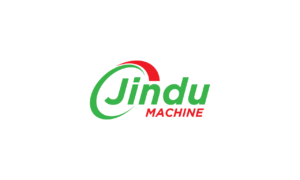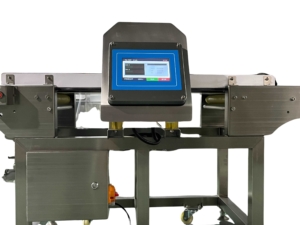How does a food metal detector work?
By Dongguan Jindu Electronic Technology Co.,Ltd
Food metal detectors play a crucial role in ensuring the safety and quality of food products by identifying and removing metal contaminants that may inadvertently be present during food processing. Here’s an overview of how these detectors work:
Detection Principles:
Food metal detectors utilize electromagnetic principles to identify metal contaminants within food products. These detectors typically consist of a search head containing coils that generate and sense electromagnetic fields.
Electromagnetic Field Generation:
The search head generates a magnetic field using a transmitter coil. When a food product passes through this field on a conveyor belt or via a chute, any metal present within the product disturbs the field.
Eddy Currents and Disturbances:
Metal objects within the food product, such as ferrous or non-ferrous metals, induce eddy currents as they interact with the electromagnetic field. These eddy currents create disturbances in the field detected by a receiver coil within the search head.
Signal Processing and Analysis:
The disturbances in the electromagnetic field caused by metal contaminants are converted into electrical signals by the receiver coil. These signals are then processed and analyzed by the detector’s electronics.
Sensitivity and Discrimination:
Food metal detectors offer adjustable sensitivity levels to accommodate different types and sizes of metal contaminants. They can differentiate between various metals, allowing operators to set the detector to recognize specific types of metals while ignoring others.
Alarm and Rejection Mechanisms:
Upon detecting a metal contaminant, the metal detector triggers an alarm, signaling operators to take action. Some food metal detectors are equipped with automatic rejection mechanisms that stop the conveyor belt or activate mechanisms to divert or remove the contaminated product from the production line.
Integration with Food Processing Lines:
Food metal detectors are seamlessly integrated into food processing lines, often positioned after various processing stages. They ensure comprehensive inspection of products as they move through the production process, maintaining product integrity.
Compliance and Quality Assurance:
Food metal detectors play a vital role in compliance with food safety regulations and standards established by organizations like the FDA (Food and Drug Administration) and other regulatory bodies worldwide. Regular monitoring, calibration, and validation of the detection systems are crucial to ensuring compliance and maintaining quality assurance.
Non-Metallic Contaminant Detection:
While primarily designed to detect metal contaminants, some advanced food metal detectors can identify non-metallic elements like stones, glass, and certain types of dense plastics using X-ray or advanced imaging technology.
Hygienic Design and Cleanability:
Food metal detectors are designed with hygiene in mind, often constructed using food-grade materials and featuring easily cleanable surfaces to prevent cross-contamination and ensure food safety.
In summary, food metal detectors operate based on electromagnetic principles, offering adjustable sensitivity levels, discrimination capabilities, and integration into food processing lines. Their primary function is to detect and remove metal contaminants from food products, contributing significantly to food safety, quality control, and regulatory compliance in the food industry. Regular maintenance, calibration, and adherence to best practices are essential to their effective operation.
Looking for a Metal detector machine for your products?
We had it all!
Metal Detector
( Click for more information)
Industrial Food Grade Metal Detector, Garment Textile Needle Detector Machine, Checkweigher Manufacturer in China Since 2012. Your reliable and trusted inspection equipment manufacturer for food & textile industry.
Products
Food Metal Detector
Foil Aluminum Metal Detector
Textile Metal Needle Detector
Checkweigher
Weighing Sorter Machine
SUPPORT
Contact Us
As for a Quote
As for Catalog 2023
FAQs
@ 2023 Jindu Machine Copyright-All Rights Reserved


